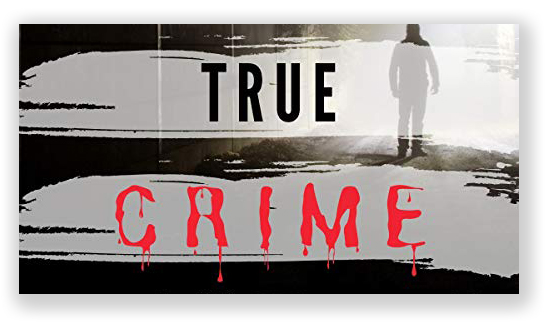- This topic is empty.
-
AuthorPosts
-
-
August 19, 2025 at 3:15 am #10477
Kris Marker
KeymasterWe post news and comment on federal criminal justice issues, focused primarily on trial and post-conviction matters, legislative initiatives, and sentencing issues.
Summer is ending with back-to-school, football, and cooler days upon us. In commemoration of a short summer, I am condensing a surprising amount of news from last week into ‘shorts’.
CASE ‘SHORTS’
 ‘Structural Errors’ Are Not a ‘Pass,’ 11th Says: The Parnell brothers ran a big peanut factory that accidentally killed 90 people or so nationwide with dangerous bacteria in the company’s products. When an investigation showed they had been falsifying certifications that their products were pure, they were indicted for fraud.
‘Structural Errors’ Are Not a ‘Pass,’ 11th Says: The Parnell brothers ran a big peanut factory that accidentally killed 90 people or so nationwide with dangerous bacteria in the company’s products. When an investigation showed they had been falsifying certifications that their products were pure, they were indicted for fraud.The brothers hired a team of experienced defense attorneys for the well-publicized trial but got convicted anyway. After losing appeals, they filed 28 USC § 2255 motions claiming their lawyers were ineffective.
Back in 2010, the Supreme Court held in Skilling v. United States that in some cases, prejudice to a defendant can be presumed if he is denied a change of venue because of pretrial publicity. Such a denial is a structural error, one that affects the framework within which the trial proceeds, rather than being simply an error in the trial process itself. Because a structural error “defies analysis by harmless error standards,” the Supreme Court has held, when such an error occurs, prejudice to the defendant is presumed.
The Parnells’ lawyers considered asking for a change of venue because of publicity but rejected it after investigation, because they concluded that a trial in the Albany, Georgia, area – where people understood peanut production and processing – could be better for defendants hoping to sell their argument that they were over-regulated and being scapegoated. In their § 2255 motions, the brothers this decision was deficient representation and – because the Skilling error was structural – they didn’t have to show that their lawyers’ blunder had prejudiced them. Instead, that could be presumed.
Last week, the 11th ruled that just because the underlying error might be structural did not mean that the Parnells’ claim that their lawyers had screwed up by not asking for a Skilling change-of-venue didn’t have to show prejudice. What was more, their Parnells’ lawyers – who brought about 150 years of trial experience to the table – had investigated whether to seek a change of venue and decided that the slim chance the Parnells could meet the Skilling standard and the possible benefits of a local jury where at least one juror understood how tough a business peanut processing could be, argued against seeking a change of venue.
“This case involves a challenge to a carefully conceived and thoroughly thought-out strategic decision made by two teams of experienced counsel after a full investigation,” the Circuit ruled. “It is not one of those rare, few and far between cases in which we will second-guess their strategic decision and find that they performed outside the wide range of reasonable professional assistance. They did not.”
Parnell v. United States, Case No. 22-13907, 2025 U.S.App. LEXIS 20328 (11th Cir. Aug 11, 2025)
Skilling v. United States, 561 U.S. 358 (2010)
 Federal Territorial Jurisdiction Question Not Easily Answered: Federal prisoner Jesse Perez committed a crime while locked up at FCI Petersburg. After being convicted at trial, he argued that the government had not proven to the jury that the crime was committed within the “special maritime or territorial jurisdiction” of the federal government, and – without that showing – the crime was not prosecutable in a federal court.
Federal Territorial Jurisdiction Question Not Easily Answered: Federal prisoner Jesse Perez committed a crime while locked up at FCI Petersburg. After being convicted at trial, he argued that the government had not proven to the jury that the crime was committed within the “special maritime or territorial jurisdiction” of the federal government, and – without that showing – the crime was not prosecutable in a federal court.Last week, the Court ruled that the issue of “special maritime or territorial jurisdiction” has two parts. The jury must find as fact where the crime occurred, in this case at FCI Petersburg. Whether FCI Petersburg is within the special maritime or territorial jurisdiction of the federal government is a purely legal question that the judge, not the jury, decides.
In this case, however, the district court goofed. Under 18 USC § 7(3), a three-part test for special territorial jurisdiction requires (1) federal acquisition of the property; (2) state consent to federal (or cession of its own) jurisdiction; and (3) federal acceptance of jurisdiction. The district court failed to evaluate each element, instead just taking judicial notice that the prison was part of the special territorial jurisdiction of the United States because the government has “practical usage and dominion” over FCI Petersburg.
That’s not enough, the 4th Circuit said, sending the case back for the district court to apply the right test.
United States v. Perez, Case No. 24-4039, 2025 U.S. App. LEXIS 20396 (4th Cir. Aug. 12, 2025)
~ Thomas L. Root
-
-
AuthorPosts
- You must be logged in to reply to this topic.
